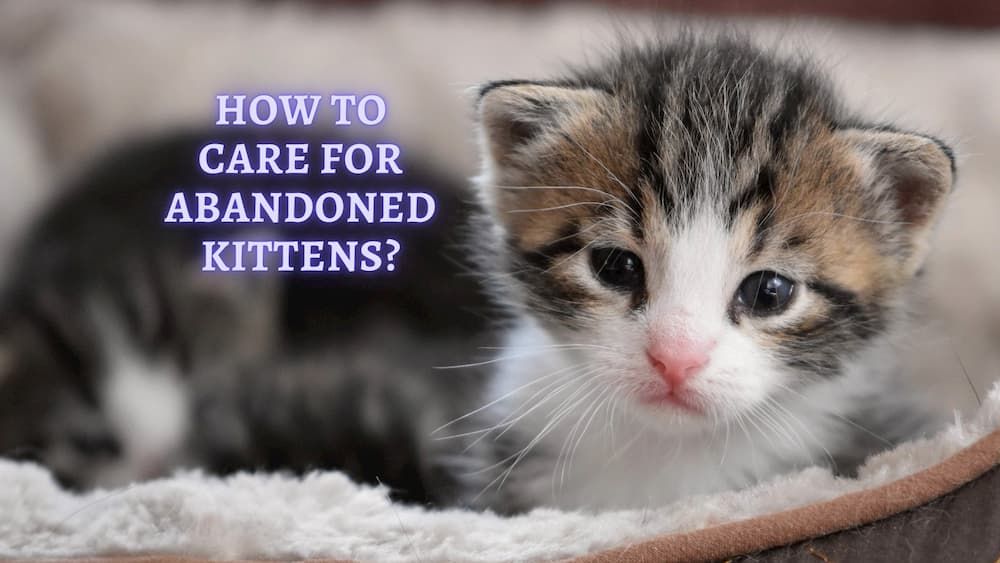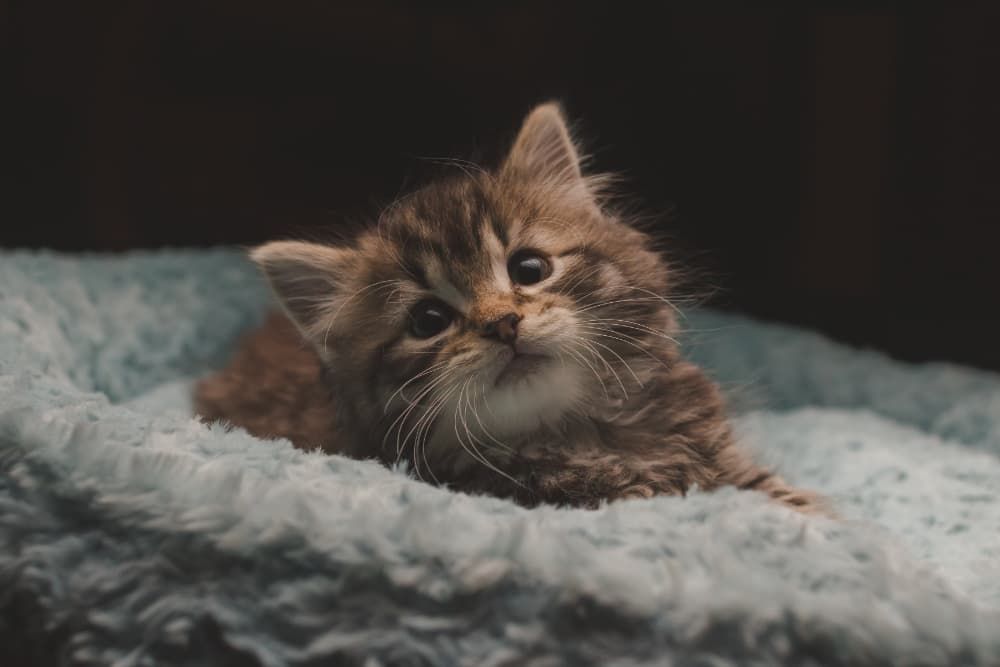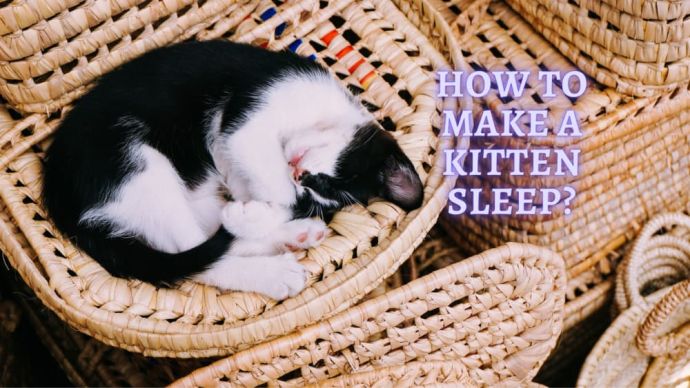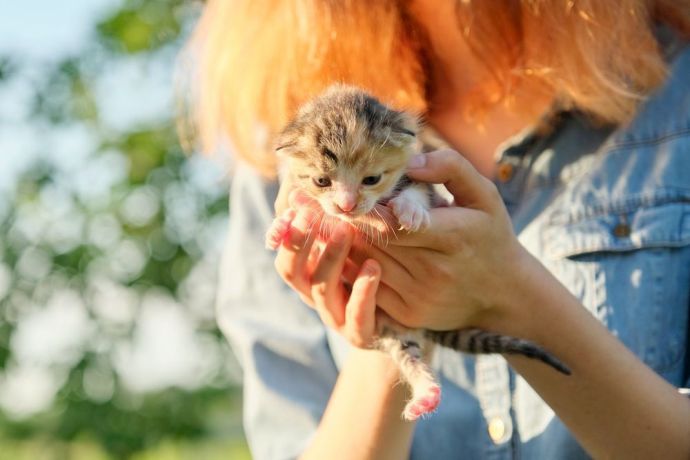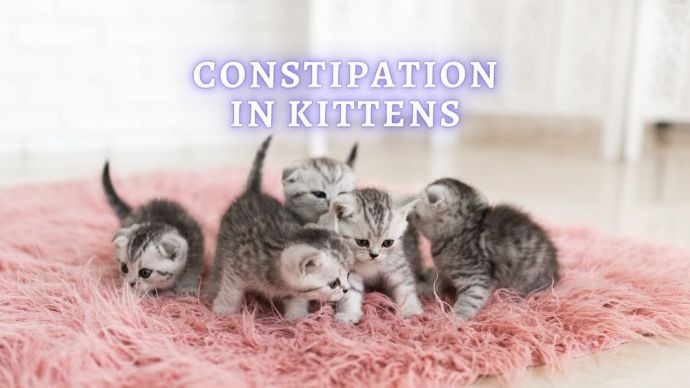How to Take Care of Abandoned Kittens?
Written by:
Author: Alina Andreeva
Alina A. is a professional writer, editor, and pet-lover. She has published over 50 articles on how to care for pets properly. Alina has been writing articles for 3 years, so she has considerable experience in this niche. Her natural curiosity helps her to expand her knowledge and learn new pet care life hacks, which will make your life much easier.
View all 79 articlesLearn about our editorial process and veterinary review board.
Reviewed by:
Veterinary review
by Dr. Edele Grey
Dr. Edele Grey is a veterinary surgeon with seven years of experience. She professionally works mostly with horses but has treated pets of all sizes including terrapins, llamas, and others. Dr. Grey graduated with honors from the University College Dublin, Ireland, has completed further education in Equine Sports Medicine. In her free time, she enjoys writing about pet ownership and educating people about veterinary care of animals and preventing disease.
View all 10 articlesLearn about our veterinary review board
Viewed: 404
Updated on: 01/24/2023
Looking after an animal is one of the most responsible and rewarding things you can do with your spare time and money; however, it cannot be done in halves. Before you take on the life of another living creature, take the time to ask yourself a few questions:
- Do you want to commit to this?
- Does your lifestyle allow for it?
- Can you afford it?
Unfortunately, so many people take on young animals too hastily before quickly changing their minds. We’ve all heard the term ‘a pet is for life, not just for Christmas’. This stems from so many people taking on animals because they think it will be a fluffy walk in the park before abandoning them as soon as they realize it takes hard work. On that same point, if you conclude that adopting a kitten is for you, there are no feline friends more deserving than those who have already been abandoned. So, what does it take to care for abandoned kittens?
How do you take care of Abandoned Kittens?
There are several key steps to follow when taking care of abandoned kittens, especially if you are the one to find them. When you first see or hear pets in the wild, it is best to wait a few hours before doing anything. This gives the mother a chance to return as they may be out looking for food. The pets stand a higher chance of surviving with their mother. If the mother is friendly, give her some food and attempt to bring her and the pets inside.
Keep them somewhere warm, and away from any other pets you may have. Provide a bed, litter box, water, and food for the mother. If the mother is feral, leave them outside and do your best to provide food, water, and shelter. The mother may initially move the pets, but she will return if you represent a food source. The pets will start naturally weaning around four weeks old but may not leave their mother until up to 8 weeks of age. If you have waited a few hours but have no sign of the mother, you can remove the pets from the nest. Keep them warm at body temperature and place them in a clean box with soft blankets.
General rules for taking care of kittens:
- Have your veterinarian check the kittens over to make sure they have no health problems;
- Keep warm;
- Keep clean;
- Keep comfortable;
- Keep them away from other animals;
- Feed them using special formula if there is no mother on the scene;
- Feed every couple of hours for newborns;
- Prevent them from getting an infection;
- Provide suitable parasite treatment;
- Stimulate them for urination and defecation;
- When a kitten cries, they are hungry or cold;
- Kittens should gain half an ounce of weight every day on average in the early days;
- Provide socialization with cage mates or humans;
- Bathe them when needed.
What do you feed Abandoned Kittens?
There are so many essential rules for feeding kittens, so we have broken them down into a handy bullet point guide for you:
- NEVER feed pets using cow’s milk — It is not nutritious enough and can cause dangerous diarrhea
- You should feed your pets using specific kitten formula and a nursing kit, both of which can be purchased online, from your veterinarian or at your nearest pet store
- Kitten formula is often cheaper if you buy it dry and mix it up yourself.
- Cut an X into your formula bottle with a pair of scissors, making the hole just big enough that liquid drips out when turned upside down
- You should sterilize the bottle and nipple before each feed by boiling in water
- Heat up the pet formula to room temperature before feeding (be careful if you use a microwave). Always follow the instructions on the packet!
- Wash your hands before and after every feeding
- The idea is to keep the kitten in a natural position when feeding, meaning the position they would be in if feeding from their mother. The most common is placing the kitten on their stomach on a towel. Let the kitten place their paws on your arm/leg while they feed.
- You will likely need to open the kitten’s mouth with your little finger before slipping the nipple of the bottle in
- Keep the bottle at a 45-degree angle to prevent air from getting into the pet’s stomach
- If the pet does not want to latch on, stroke their back and rub their forehead to mimic its mother’s cleaning
- If they do not get along with the nipple, try a different type. There are two main types — short and long
- If the kitten still does not want to feed, try rubbing Karo syrup on its lips. This provides some sugar for energy
- If they still do not feed, it may hint towards an illness
- You should look to feed the kitten approximately 8cc of formula per ounce of weight each day
- When they are full, their tummy becomes rounded
How often should I feed an Abandoned Kitten?
How often you feed the kittens depends on how old they are. Most kitten formula packets will also give you a recommended amount to feed based on the kitten’s weight. Remember, when a kitten is crying, it means they are either cold or hungry. Follow this simple age guide to see how often you should be feeding your kitten.
- Newborn to one week old — Feed them every 2-3 hours, day and night.
- One to two weeks old — Feed them every three or four hours, day and night.
- Three weeks old — Feed them every four to five hours, day and night
- Four weeks old — Feed them every five to six hours, day and night
- Over four weeks old — You can now start to wean the kitten onto some high-quality canned food. However, you should buy specific kitten canned food and add around half a teaspoon to the formula. Of course, the baby bottle will need to have a big enough hole for the food to fit through. You can also start to encourage them using a dish.
- 6 weeks old — The kitten should now be fully weaned and eating high-quality kitten-specific canned food. You should feed them from a shallow dish.
- Eight to ten weeks old — If you are raising them to be adopted by someone else, the pets are now ready to move to their new paw-rents.
How do I know how old a Kitten is?
Of course, if you find an abandoned kitten, you may not always know the exact age, which can be especially difficult to know how much and how often to feed them. However, there is a general guide to determining a kitten’s age, so do not fear!
- Newborn to one week old — Their eyes are shut and their ears remain flat against their head. The kitten’s skin looks pink, and they may even have part of their umbilical cord still attached to them.
- One week to ten days old, their ears are still flat against their heads, but their eyes are beginning to open. The kitten will remain smaller than your hand at this stage.
- Their ears are standing up away from their body, and their eyes are fully open at three weeks old. For the first time, their teeth are on view. The kitten is beginning to walk, but they look far from comfortable on their legs.
- Four to five weeks old — You may have noticed that their eye color has changed from blue to something else. The kitten is now confident on their feet and can pounce/leap.
How long can newborn kittens live without their mother?
A newborn kitten cannot live long without milk/formula. 12 hours without either of these things, and they will die. Newborn kittens need vital nutrients in this to survive. This is why you have to wake up every couple of hours through the night when looking after newborn pets. If the kitten is around three weeks old, it can survive two or three days without milk/formula. Kittens should nurse on their mother’s milk, or a replacement, for around six weeks before they can survive independently.
 Kitten Care When to Switch from Kitten to Cat Food: Vet Advice on Switching on Adult Cat Food
Kitten Care When to Switch from Kitten to Cat Food: Vet Advice on Switching on Adult Cat Food - 315
- 0
 Kitten Care How Do I Introduce My Cat To A New Kitten? 7 Steps To Introduce Cats to Each Other
Kitten Care How Do I Introduce My Cat To A New Kitten? 7 Steps To Introduce Cats to Each Other - 84
- 0
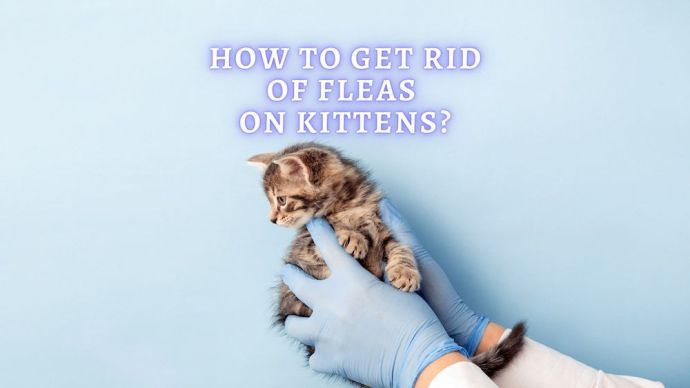 Kitten Care How To Get Rid Of Fleas On Kittens? Ways to Treat and Prevent Kitten Fleas
Kitten Care How To Get Rid Of Fleas On Kittens? Ways to Treat and Prevent Kitten Fleas - 124
- 0
 Cat Care Why Does My Cat Attack My Legs? 10 Reasons Why and What To Do About It (Vet-Approved Advice)
Cat Care Why Does My Cat Attack My Legs? 10 Reasons Why and What To Do About It (Vet-Approved Advice) - 45568
- 21
 Cat Veterinary Tips Cat Stomach Gurgling: Vet Advice on Why is Your Cat Stomach Gurgling?
Cat Veterinary Tips Cat Stomach Gurgling: Vet Advice on Why is Your Cat Stomach Gurgling? - 35343
- 4
 Cat Veterinary Tips My Cat Lost its Voice: Can Cats get Laryngitis? (Vet Advice)
Cat Veterinary Tips My Cat Lost its Voice: Can Cats get Laryngitis? (Vet Advice) - 23247
- 13









